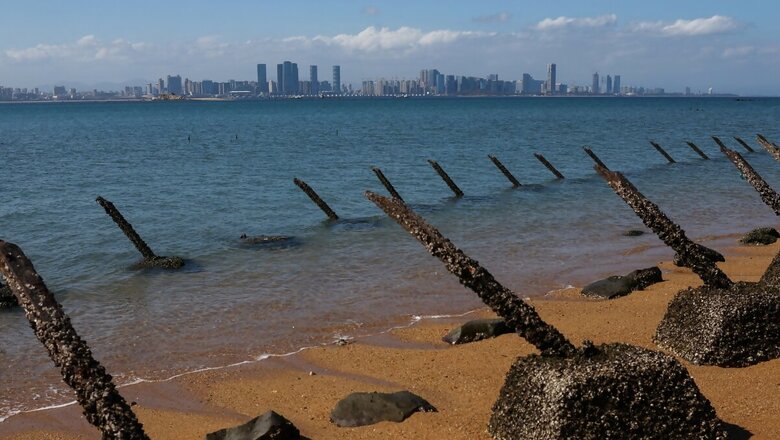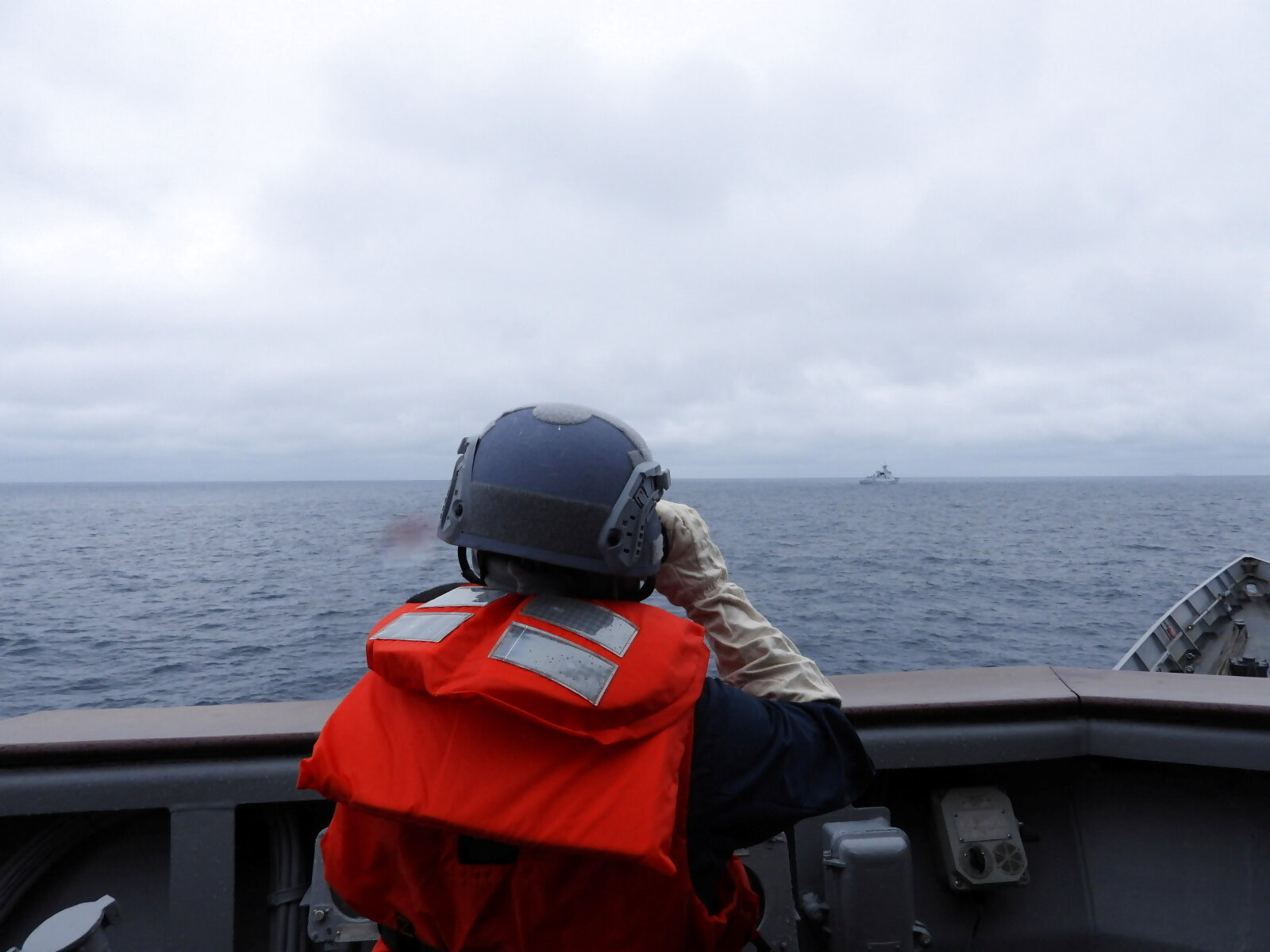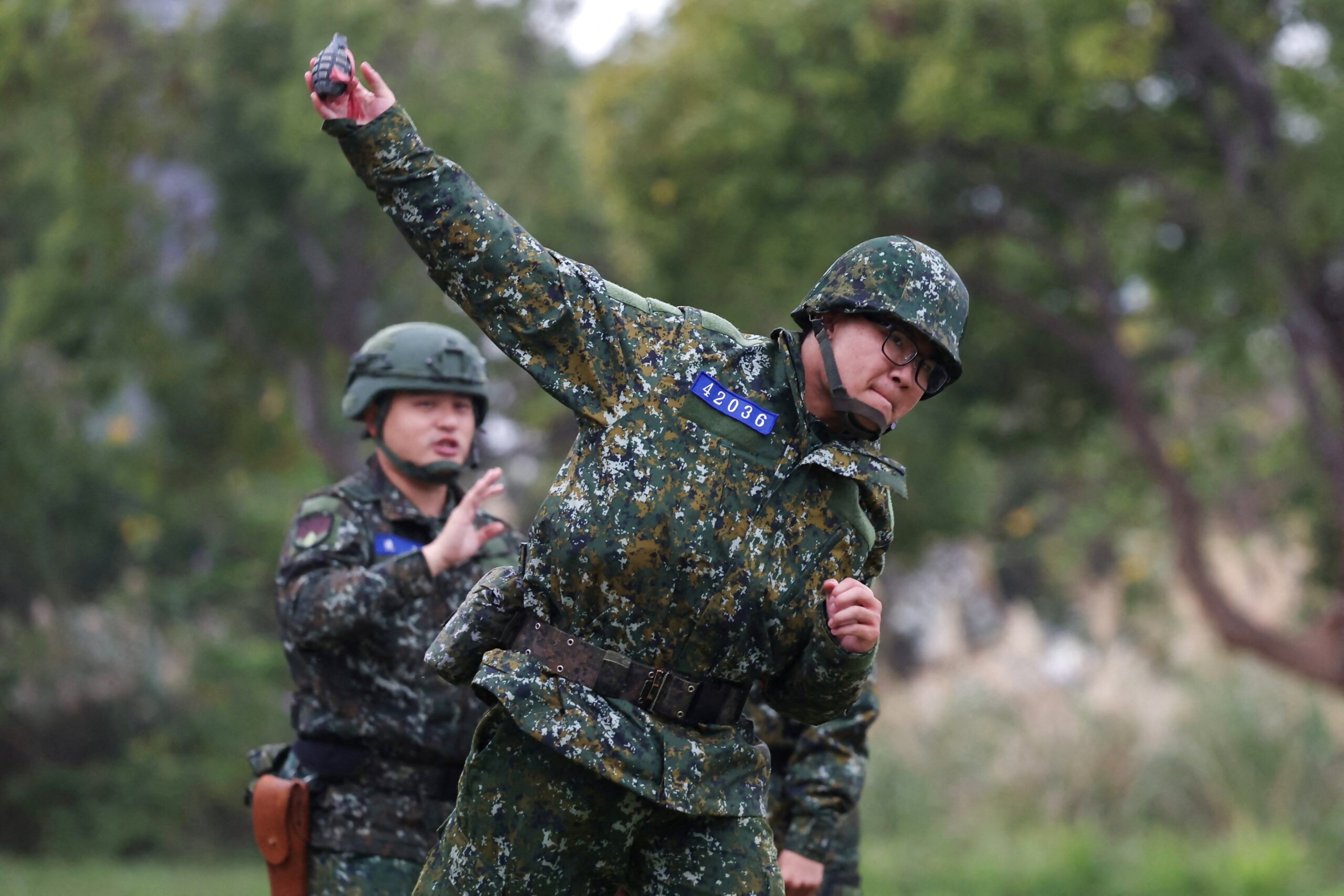
views
China could potentially isolate Taiwan through a maritime “quarantine strategy” amid the escalating tensions in the maritime boundary separating the two, according to the Washington-based think tank Center for Strategic and International Studies (CSIS).
This approach, highlighted in a report published on June 5, would involve China’s coast guard and maritime militia imposing restrictions on Taiwan’s ports, aiming to disrupt vital supplies without declaring outright war. It’s seen as a gray zone tactic, falling short of a full blockade.
What Is The Quarantine Strategy?
The strategy seeks to exert pressure on Taiwan while avoiding direct military confrontation with the United States, which supports Taiwan’s defence. Experts warn that such actions could strain international relations and impact global trade, given Taiwan’s significant role in semiconductor production and its economic ties with China.
“The political and operational goals of a quarantine are not to completely seal Taiwan off from the world but to impose a system of controls over the island’s maritime and/or air commerce. In a quarantine, key necessities like food and medicine could continue to flow into Taiwan, enabling China to assert that its law enforcement operation is imposing no hardship,” the CSIS report said. It added that a quarantine could target the delivery of specific goods, such as shipments of US weapons to Taiwan “A key goal of the quarantine approach is to obtain compliance from international companies and other countries to demonstrate China’s power over Taiwan,” the report added.
The report underlines Beijing’s ongoing efforts to assert control over Taiwan, which it claims as its own territory despite never having governed it. This move comes amid heightened tensions in the region, with Taiwan maintaining unofficial relations with major Western democracies. China’s ability to sustain such a quarantine, and the potential economic and political repercussions, remain key concerns. Critics argue that the strategy could push Taiwan towards declaring independence, a move Beijing has threatened to oppose with force.

‘War games’
Beijing views democratic Taiwan as part of its own territory and has refused to renounce using force to unify with the self-ruled island one day. It has stepped up pressure on Taiwan in recent years and held war games around the island last month following the inauguration of its new leader Lai Ching-te. Beijing has branded Lai a “dangerous separatist” and has not conducted top-level communications with Taiwan since 2016. It continues to maintain a near-daily presence of naval vessels and warplanes around Taiwan.
According to state media outlet Xinhua, China on Friday announced the inclusion of the death penalty for “particularly serious” cases among judicial guidelines on criminal punishments for “diehard” supporters of Taiwanese independence. Beijing had released a notice about punishing “‘Taiwan independence’ diehards for splitting the country and inciting secession”. It said the notice specified the death penalty for “ringleaders” of independence efforts who “cause particularly serious harm to the state and the people”.

Taiwan’s Defence
Taiwan hit back swiftly, saying Beijing “has no legal jurisdiction at all over Taiwan” and that the rules “had no binding force on our people”. “The actions of the Beijing authorities will only provoke confrontation between the peoples across the Taiwan Strait… and are not conducive to positive developments in cross-Strait ties,” the island’s Mainland Affairs Council said in a statement.
Taiwan’s annual war games this year will be as close as possible to actual combat, no longer just putting on a show to score points but aiming to simulate real fighting given a rapidly rising “enemy threat” from China, a senior official said. Taiwan starts its five-day Han Kuang exercises on July 22. A senior Taiwan defence official, speaking on condition of anonymity to be able to speak more freely, said there was an urgent need to rethink how the drills were conducted.
“In recent years, the enemy threat has changed rapidly,” the official said. “Our defence combat plan must also be continuously revised on a rolling basis, and the urgency of comprehensive combat training is becoming more and more important.” Elements that were mostly for show, like rehearsal drills, have been cancelled, while this year there will be nighttime exercises and, unusually, the capital Taipei will be included too, the official said.
(With agency inputs)




















Comments
0 comment